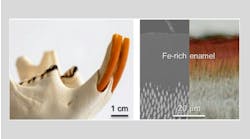By Kenneth Kornman, DDS, PhD
It is common knowledge that people should receive dental cleanings two times a year. Unfortunately, most insured people still only visit the dentist once a year, even though they are covered for two visits.
While the general benefits of regular dental preventive care are well known—fewer cavities, less gum disease—we now know that these benefits go far beyond the mouth. In fact, preventive dental care can play a critical role in helping your patients live a longer and healthier life.
Identifing individuals at risk for severe forms of periodontal disease and connecting them to preventive care is of upmost importance. To do so will not only improve their oral health, but could ultimately impact the trajectory of their overall wellness.
Many people are unaware that we all have certain genetic factors that play an important role in our inflammation system. A key mediator of chronic inflammation in oral and systemic health is the interleukin 1 gene (IL-1). One in three people are genetically programmed to overproduce IL-1, and therefore have a substantial increase in risk to develop severe periodontal disease.
How can we identify patients with a predisposition to overproduce IL-1? A simple test administered during a patient’s routine dental exam is all that is needed.
Genetic risk testing
Genetic risk testing is a type of medical test that identifies specific changes in chromosomes or genes. The results of a genetic test can confirm or rule out a suspected genetic condition or help determine a person’s chance of developing or passing on a genetic disorder. More than 1,000 genetic tests are currently in use, with more being developed on a regular basis. Genetic tests provide patients and their health-care team with insights that enable them to develop a course of personalized preventative care or treatment options.
An example of such a preventive genetic test is Ilustra. This test is a simple, one-time test that indicates if a patient has a genetic risk for severe periodontal disease due to excessive inflammation. It identifies patients at higher risk for periodontal disease and gives dental professionals the ability to make a significant impact by reducing their inflammatory burden.
Often administered at an employer-sponsored health event or self-administered at home, the Ilustra genetic risk test utilizes a simple, noninvasive cheek swab to collect cells which are sent to a lab. The test results are then sent directly to the dental provider.
Role in the dental setting
Genetic risk testing encourages patient engagement with doctors, dentists, and most importantly, encourages patients to be proactive about their health. The results from genetic risk testing can also help dental professionals stratify patients according to their risk level to optimize preventive care. Genetic testing is therefore an important tool in the prevention and control of periodontal disease, as well as other severe chronic diseases.
Dental professionals who see patients with periodontitis and oral inflammation must inform their patients about the link between oral and systemic health and discuss preventive care. There are three key components that should be discussed:
- Education: Educate patients in home care and reinforcing the importance of home care. Cleaning regularly the bacteria deposits that are already present in the mouth will help reduce the inflammation.
- Identification: Identify any problems that could be managed early-on before they progress or become painful leading to tooth loss. Proper management of inflammation and bacteria level are directly impact overall health. Genetic risk testing can also help identify patients at higher risk for developing periodontal disease.
- Reinforcement: Reinforce the habit of visiting the dentist on a regular basis. Based on the risk factors and what we know about periodontal disease there are likely many patients coming only once a year, but would benefit from more frequent preventative visits.
Dental professionals can play a large role in helping to combat the growing trend of chronic disease. Using genetic insight to customize treatment can enable dental professionals to help patients combat chronic inflammation and live healthier, longer lives.
Kenneth S. Kornman, DDS, Ph.D. is Chief Scientific Officer of Interleukin Genetics in Waltham, Mass. and Editor of the Journal of Periodontology. He was previously professor and chairman of periodontics at the University of Texas Health Science Center at San Antonio, retains appointments at Harvard and the University of Michigan dental schools. He has co-authored three textbooks and published over 125 research papers, and has lectured worldwide on the transfer of technology to clinical practice.







